Asthma symptoms can vary throughout the day, with many people noticing that their breathing difficulties intensify either in the morning or at night. Understanding why this happens and how to manage it can significantly improve quality of life. In this blog, we explore the differences between morning and nighttime asthma, the triggers behind them, and effective management strategies.
Why Do Asthma Symptoms Worsen at Certain Times?
Our body’s internal clock, known as the circadian rhythm, influences various biological functions, including lung function and airway inflammation. Studies show that lung function is typically lowest in the early morning hours, which can contribute to morning asthma symptoms. Similarly, nighttime asthma can be triggered by changes in body position, exposure to allergens, or gastroesophageal reflux disease (GERD).
Nighttime Asthma: Causes and Personal Experience
Many people with asthma experience worsening symptoms at night, a condition known as nocturnal asthma. Siddhant, the founder of Asthma Friend, has personal experience with this. He often wakes up 2-3 times a night due to breathlessness and acid reflux. He has identified that his symptoms get worse when he eats late at night or consumes cold drinks.
Some common triggers for nighttime asthma include:
- Gastroesophageal Reflux Disease (GERD): Acid reflux can trigger airway inflammation, leading to breathlessness at night.
- Lying Down: This position can cause mucus buildup and increased airway constriction.
- Exposure to Allergens: Dust mites, pet dander, and mold in bedding can exacerbate symptoms.
- Cold Air: Breathing in cold air, especially in winter, can irritate the airways and worsen asthma.
How to Manage Nighttime Asthma:
Siddhant has found relief by making a few adjustments, such as:
- Using a wedge pillow to keep his upper body elevated, reducing acid reflux and breathing difficulties.
- Taking nasal sprays and using a neti pot at night to keep nasal passages clear.
- Avoiding late-night meals and cold beverages, which helps minimize reflux-related symptoms.
Morning Asthma: Causes and Personal Experience
Morning asthma symptoms can be frustrating, making it difficult to start the day. Many people experience a stuffed nose, mucus buildup, and tightness in the chest upon waking. Siddhant experiences this too, often dealing with a blocked nose and mucus in his throat in the morning.
Common causes of morning asthma include:
- Mucus Accumulation: Overnight, mucus can build up in the airways, making it difficult to breathe in the morning.
- Airway Inflammation: The body’s natural cortisol levels, which help control inflammation, are lowest in the early morning, leading to increased airway sensitivity.
- Allergen Exposure: Dust mites in pillows and blankets can trigger asthma symptoms overnight, leading to morning congestion.
- Cold or Dry Air: Breathing in dry or cold air while sleeping can worsen symptoms upon waking.
How to Manage Morning Asthma:
To ease morning symptoms, Siddhant follows a routine that includes:
- Drinking warm water in the morning to help loosen mucus and soothe the throat.
- Using a neti pot and nasal spray to clear congestion and reduce nasal inflammation.
- Avoiding allergens by keeping bedding clean and using dust-proof covers on pillows and mattresses.
Seasonal Impact on Asthma
Asthma symptoms can also change with the seasons. Siddhant notices that his symptoms are significantly worse in winters, as cold air and indoor heating can dry out the airways and make breathing more difficult. People with asthma may need to take extra precautions in colder months, such as using humidifiers, layering up, and ensuring good indoor air quality.
Final Thoughts
Asthma symptoms can be unpredictable, but recognizing patterns in when they worsen can help in managing them better. Whether it’s nighttime breathlessness due to acid reflux or morning congestion caused by mucus buildup, small adjustments in lifestyle and treatment can make a significant difference. By incorporating personalized strategies like Siddhant’s, elevating the head while sleeping, using a neti pot, drinking warm water, and avoiding late-night meals it’s possible to minimize asthma flare-ups and breathe easier throughout the day and night.
If you experience morning or nighttime asthma, what has worked for you? Share your thoughts in the asthma friend community.












